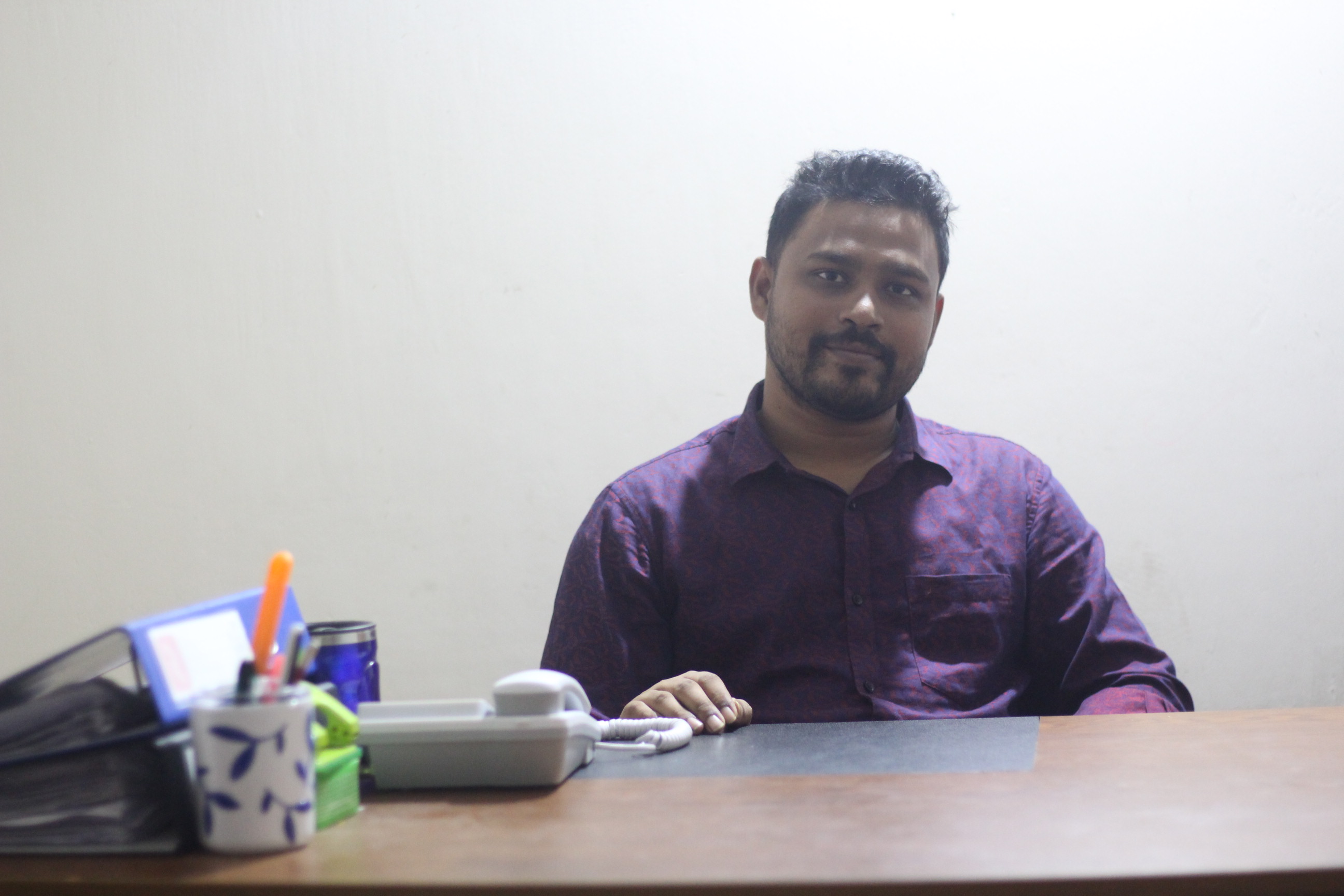
Stories we published this week: a story of a young entrepreneur who has built a profitable internet business in Dhaka without any external funding.
Competition continues to grow in Dhaka’s mobile phone market and Vivo, Chinese smartphone brand from the same parent company of OPPO, launches in Dhaka.
Walton introduced first made in Bangladesh phone and why we think Walton is the best positioned local consumer technology company to thrive in the long run.
Grameenphone launches first M2M plans and the company continues to search for its one thing beyond telecom.
Shohoz, the ticketing eCommerce in Dhaka, makes a necessary move into ride-hailing which will help the company to protect its existing business.
We ended the week with a magnificent interview with Mamun Rashid, Managing Partner of PwC Bangladesh.
[su_divider top="no" divider_color="#adacab" link_color="#edde29" size="1"][/su_divider]
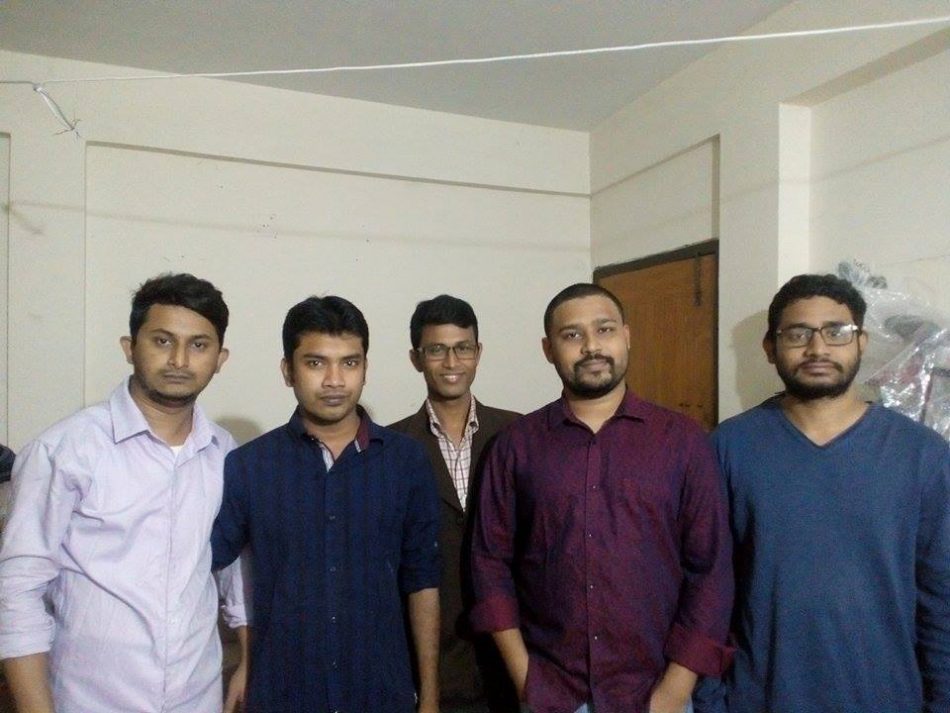 24bazaar and How To Build A Profitable Online Business In Dhaka: An Interview With Mr. Maksudul Karim, Founder, 24bazaar.com
24bazaar and How To Build A Profitable Online Business In Dhaka: An Interview With Mr. Maksudul Karim, Founder, 24bazaar.comIn 2012, Maksudul Karim started 24bazaar.com on the side while doing a full-time job – selling home appliances online. After a few months, 24bazaar.com started to receive quite a good traction from the market that eventually led to Mr. Karim leaving his job to pay full attention to his slowly growing business.
Online business was not a thing yet in 2012. Very few people used to take it as something promising. But Karim saw the opportunity and worked hard persistently. Over the past several years, he has come a long way building a profitable online business on the way.
Having said that, it was not an easy journey for Karim. He had to endure his share of challenges and tribulations. And like most things in life, honest hard work also paid off for Karim. From a one-man operation, 24bazaar.com is now a team of 11 members and growing.
[su_divider top="no" divider_color="#adacab" link_color="#edde29" size="1"][/su_divider]
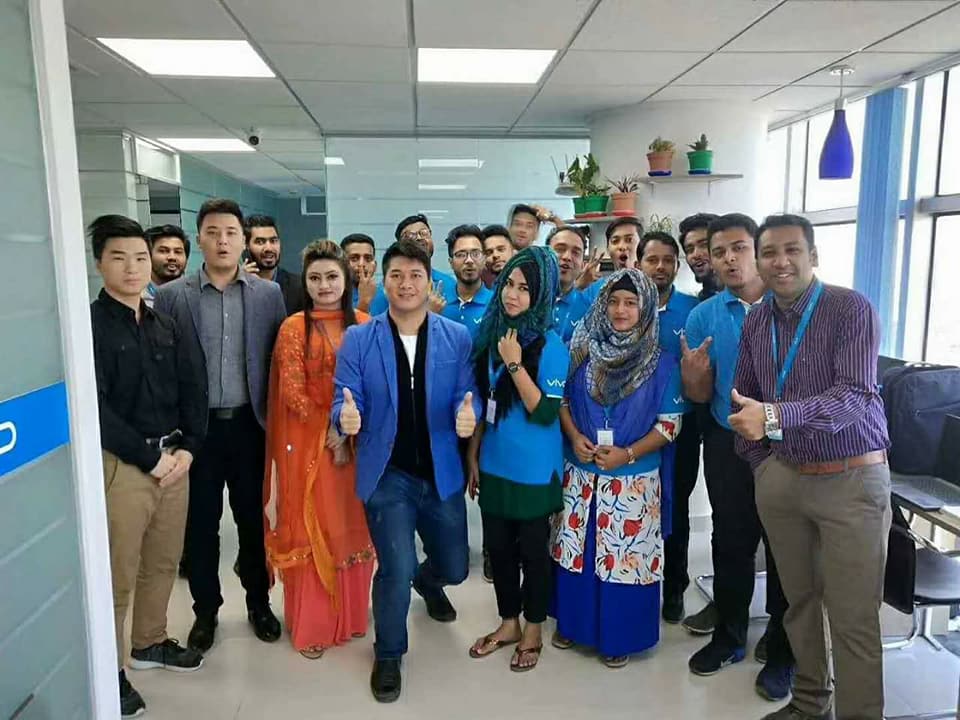 Chinese Smartphone Brand Vivo Quietly Launches In Dhaka and Competition Continues To Intensify In Dhaka’s Mobile Handset Market
Chinese Smartphone Brand Vivo Quietly Launches In Dhaka and Competition Continues To Intensify In Dhaka’s Mobile Handset MarketVivo, the Chinese smartphone maker, has quietly launched in Bangladesh last week. Vivo joins a growing band of brands entering Dhaka’s mobile phone market which, according to IDC, is the 6th largest mobile phone market in the world.
[su_divider top="no" divider_color="#adacab" link_color="#edde29" size="1"][/su_divider]
Walton’s ‘Made In Bangladesh’ phone, Walton’s Moats, And Why Walton Is A Hugely Underrated Company
Walton, the homegrown consumer tech manufacturing giant, has done something incredible last week, it has launched first ever locally manufactured smartphone in Bangladesh.
The phone, call Primo E8i, carries the tag Made in Bangladesh and is now available in the market through Walton’s distribution network. It was manufactured at the mobile phone plant of Walton Digi-Tech Industries Ltd in Chandra, Gazipur.
[su_divider top="no" divider_color="#adacab" link_color="#edde29" size="1"][/su_divider]
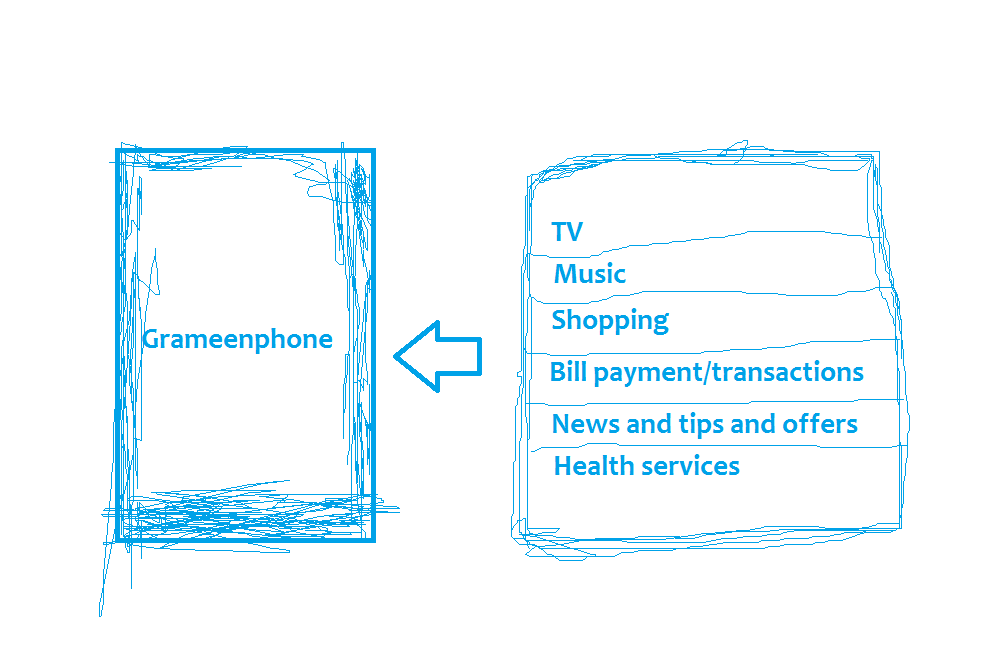
Since its inception as an epochal company in 1997, an event that fundamentally changed the consumer technology scene in Bangladesh, it continues to do so even these days.
This time it did something quite interesting, in some way a first major breakthrough in the IoT adaptation in Bangladesh. We will have to wait to see how it turns out, nonetheless, in life, most of the time taking an action is what matters most, the result does not. As Foley told to a group of founders yesterday, it is all about the courage to choose a path less traveled.
Enough ado, the news is Grameenphone Ltd. (GP) has launched a new M2M (Machine to Machine) Plan for its corporate clients that will enable users to manage their various devices more efficiently. This is the textbook example of IoT service. And I’m not the right person to explain the intricacies of the service, but I think this is a notable move and deserves attention.
[su_divider top="no" divider_color="#adacab" link_color="#edde29" size="1"][/su_divider]
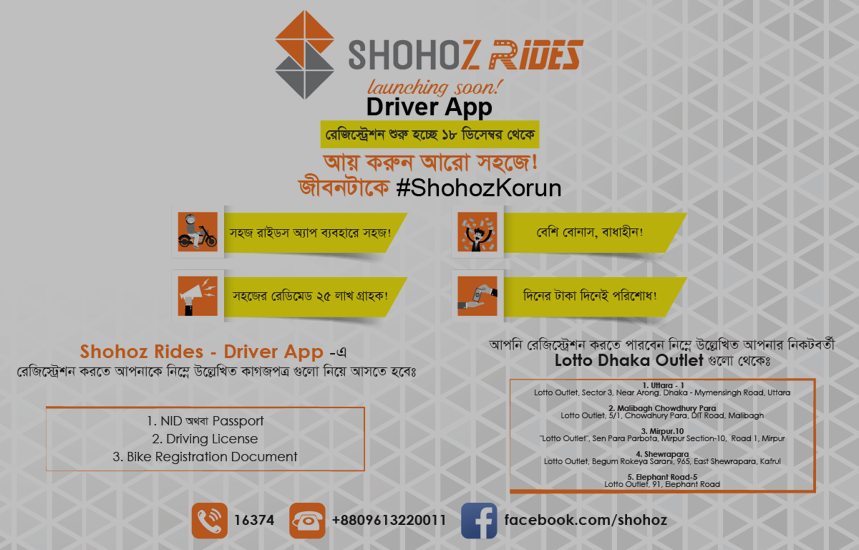
Shohoz has made a necessary move, finally, the company has announced that is is going to launch Shohoz Rides, its ride-hailing service, soon. It has not specified any date for the launch yet, however, registration for bikers is open now and anyone can register as driver visiting Lotto outlets in different parts of the city, an utterly inconvenient proposition for interested drivers.
While this announcement has raised some interesting questions in Dhaka’s tech community, I believe this is an important, in fact, an absolutely necessary move for Shohoz. More on that in a moment.
Theoretically speaking, Shohoz is a logistics company at its core, at least it is for now. It does not sell tickets, it enables customers to get tickets without visiting ticket counters for bus, movies, launch and in the future many other things. It does this either electronically or by delivering ticket physically to customers doorstep in collaboration with owners of buses and other services.
In the process, it makes your life easy and builds an intermediary relationship with the customers and disintermediate ticket counters of buses and cinemas and launches from customers. This disintermediation of service providers’ own distribution channel is where Shohoz’s success lies. When it manages to build a direct relationship with end customers it becomes indispensable for the services providers for selling tickets.
[su_divider top="no" divider_color="#adacab" link_color="#edde29" size="1"][/su_divider]
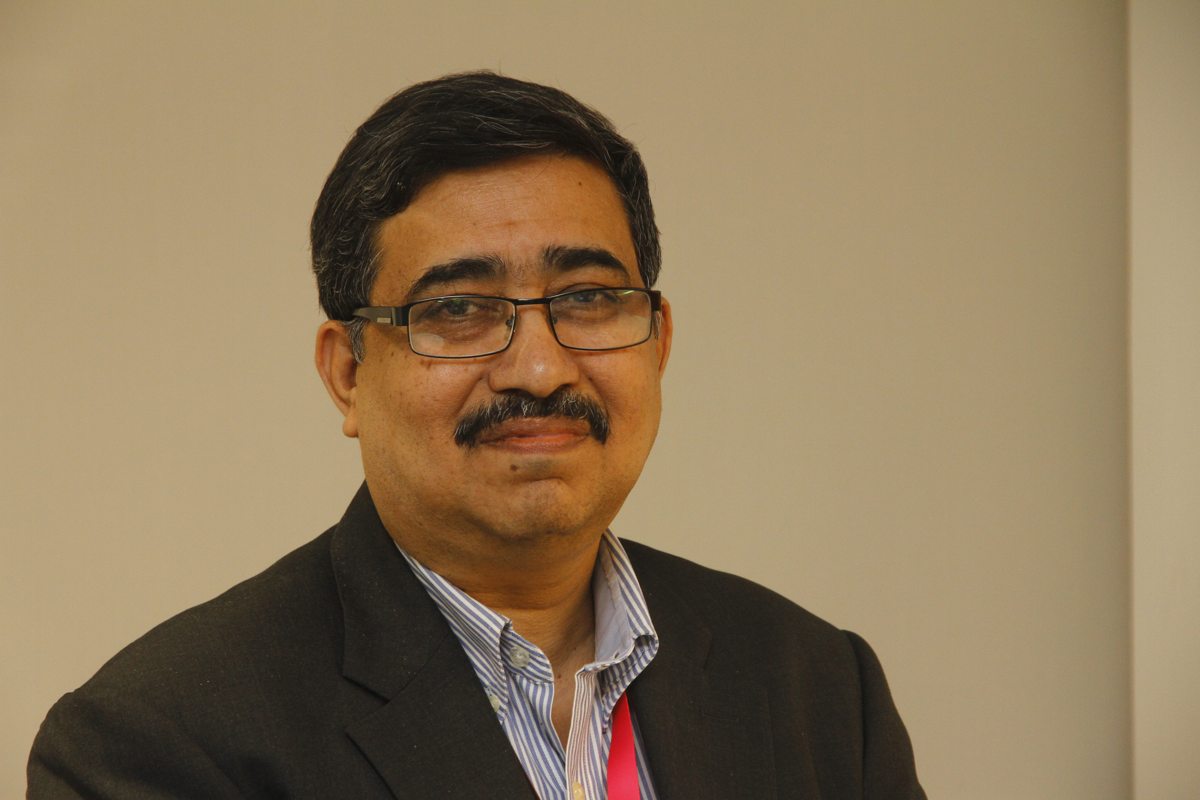
Mamun Rashid, Managing Partner of PricewaterhouseCoopers(PwC) Bangladesh, is a voracious reader, “growing up, I had spent more time with books than anything else and even these days’ books are my best friends,” Says Mr. Mamun. Son of a Government employee, Mr. Mamun spent his childhood in different parts of the country, “I had a fascinating childhood with diverse experiences,” he says, “thanks to my father who was in a transferable Government job which took us to all corners of the country.” The blend of these two things shows in his personality.
Mr. Mamun has a diverse career spanning multiple sectors and countries. Prior to joining PwC Bangladesh, he was the CEO of Citibank N.A., Bangladesh, the first Bangladeshi CEO of an American Bank. He started his career at ANZ Grindlays Bank in Dhaka and Mumbai. In 1993, he moved to Standard Chartered Bank where he successfully built up treasury and financial institutions businesses in Bangladesh.
Mr. Mamun has been teaching various business subjects for the last 20 years as an adjunct and full-time professor and has authored 12 books on contemporary business and economic issues.
In this interview, Mr. Mamun walks us through his early life and upbringing, reflects on his journey to what he is doing today, trials and tribulations he has had to face throughout his career, shares his thoughts on the state and the future of financial industry in Bangladesh, talks about his work at PwC Bangladesh, PwC Bangladesh operation, its internal culture of collaboration and his ambition for PwC Bangladesh going forward, discusses how empathy and creating opportunities for people to grow and lead informs his management philosophy, shares his thoughts on leadership and why leadership is not about the self, and growing an organization, ponders upon the meaning of life and explores the eminent importance of gratitude and creating value for others.
